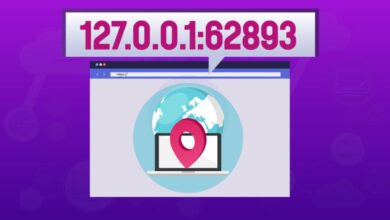How Adaptive Assessment Technologies Personalize Student Learning
Enhancing Education with Adaptive Assessment Tools
In today’s classrooms, every student is unique and learns differently. Adaptive assessment technologies help teachers understand how each student learns best.
These technologies use smart computer programs to give quizzes and tests that change based on a student’s answers. If a student answers a question correctly, the next one might be harder. If they get it wrong, the next question might be easier. This way, each student receives questions just right for their learning level.
Personalized learning is very important. It makes sure that no student feels left out or bored. When lessons are just right for them, students feel more interested and excited about learning. They can understand things better and feel proud of their progress.
In Addition, Adaptive assessment technologies help teachers see where students need help right away. This means they can quickly give extra help or new challenges. With these tools, learning becomes more fun and effective for everyone in the classroom.
Understanding Adaptive Assessment Technologies
Adaptive assessment technologies are special tools that help teachers see how students learn. They use computers and smart software to give tests that change based on each student’s answers.
For example, if you answer a question correctly, the next question might be a little harder. If you get it wrong, the next question might be easier. This way, the test fits just right for you.
These tools have many cool features. They collect data on how well you do on each question. Then, they use this data to figure out what you know and what you need to learn next. They also give instant feedback. This means you can see how you did right away, and know what to work on.
Another key part of adaptive assessment technologies is that they can create custom learning paths. This means they can suggest activities and lessons that are perfect for you. They can help you get better at things you find hard and give you new challenges when you are ready.
Understanding these technologies is important because they make learning fun and just right for each student. They help teachers and students see progress and understand what comes next. With adaptive assessment technologies, every student can learn at their own pace and feel proud of their achievements.
Read Also: 5 Tips to Ignite Your Students’ Imagination
The Need for Personalized Learning
Every student learns in their way. This is why personalized learning is so important. Traditional assessments, like regular tests, are the same for everyone. They don’t change to fit each student’s needs.
However adaptive assessments are different. They change based on how you answer each question. If you get a question right, the next one might be harder. If you get it wrong, the next one might be easier. This way, the test is just right for you.
Personalized learning helps students in many ways. It makes learning more fun and interesting because the lessons are just right for each student. It helps students understand things better because they learn at their own pace. Students feel more confident and happy when they see they are making progress. They don’t feel bored or frustrated because the work is too easy or too hard.
Adaptive assessments also help teachers see what each student needs. They can give extra help to students who need it and new challenges to ready students. This way, every student gets the best learning experience possible. Personalized learning makes sure everyone has a chance to succeed and feel proud of their work.
Read Also: Transforming Education with Student Information Systems
How Adaptive Assessment Works
Adaptive assessment works like a smart helper for teachers and students. It collects data every time a student answers a question. This data includes whether the answer was right or wrong and how long it took to answer. The computer then looks at all this information to understand how well the student knows the subject.
As a result, One cool part of adaptive assessment is real-time feedback. This means the computer tells you right away if your answer is correct. If you make a mistake, it shows you the right answer and sometimes explains why. This helps you learn faster because you can fix mistakes right away.
Another great thing about adaptive assessment is that it customizes your learning path. Based on the data it collects, the computer knows what you need to work on. If you are good at one topic, it gives you harder questions to keep you challenged.
Thus, If you find something difficult, it gives you easier questions and extra practice. This way, you always get lessons that are just right for you.
Adaptive assessments are like having a teacher who knows exactly what you need to learn next. They help you stay interested and motivated because you can see yourself getting better. They also help teachers see how each student is doing and where they might need more help.
By customizing learning paths, adaptive assessments make sure that every student can learn at their own pace and succeed.
Read Also: 10 Proactive Classroom Management Tips for New Teachers
Benefits of Adaptive Assessment Technologies
Adaptive assessment technologies bring many benefits to the classroom. They make learning more fun and exciting for students. One big benefit is enhancing student engagement.
When students answer questions that are just right for them, they stay interested and focused. They don’t get bored with easy questions or frustrated with hard ones. This keeps them motivated to learn more.
Another important benefit is improving learning outcomes. Adaptive assessments help students learn better. They give instant feedback, so students know right away if they got the answer right or wrong.
This helps them understand their mistakes and learn from them quickly. As a result, students can remember what they learned and do better on future tests.
Adaptive assessment technologies also support diverse learning styles. Every student is different and learns in their way. Some might learn better with pictures, while others prefer reading or listening.
Adaptive assessments can adjust to these preferences. They can show questions in different formats to match how each student learns best. This makes learning easier and more effective for everyone.
Challenges and Considerations
Adaptive assessment technologies are very helpful, but they also come with challenges. One big challenge is the technical and implementation part. Schools need good computers and fast internet for these tools to work well.
Sometimes, the software can have bugs or problems that make it hard to use. Teachers also need training to learn how to use these new tools. This can take time and money.
Another challenge is data privacy and security. Adaptive assessments collect a lot of information about students. This data helps to personalize learning, but it needs to be kept safe. Schools must make sure that this information does not get into the wrong hands.
They must follow strict rules to protect students’ privacy. This is very important because parents and students need to trust that their information is safe.
Ensuring equity and access is also a big consideration. Not all students have the same access to technology. Some might not have a computer or internet at home.
This can make it hard for them to use adaptive assessments. Schools need to find ways to help these students. They might provide devices or internet access to make sure everyone can benefit from the technology.
Conclusion
Adaptive assessment technologies are like magic helpers for learning! They change tests based on how you answer, so it’s never too hard or too easy.
Remember, they give instant feedback, showing you if you got it right or need more practice. This helps you learn better and feel proud of your progress.
In the future, personalized learning with adaptive technologies will keep getting better. Imagine lessons that know exactly what you need to learn next, like a teacher who knows everything about you! It will make learning even more fun and exciting.
Teachers, let’s use adaptive assessment to help all students learn in their special way. When we understand what each student needs, everyone can succeed and feel happy about learning. Let’s try new things and make our classrooms even better!
Consequently, Do you have thoughts about adaptive assessments? Share them in the comments below! And don’t forget to tell your friends about how cool adaptive technologies are for learning. Together, we can make learning awesome for everyone!









